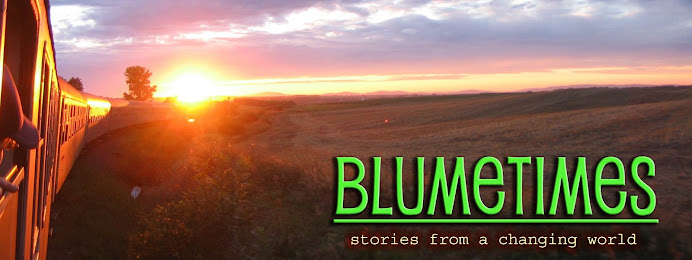Wednesday, September 29, 2010
The Vermont Guide to Global Living
Friday, September 17, 2010
Willing and Able
 I just had this essay published on the Coalitions of the Willing's blog. Feels good to finally get my opinion aired in public. Now on to Cop16!
I just had this essay published on the Coalitions of the Willing's blog. Feels good to finally get my opinion aired in public. Now on to Cop16!- Paul Hawken
I have been meaning to come out of the closet for a while now, and confess that I took a very different view of what happened during the UN climate talks in Copenhagen than what has become the oft-repeated mainstream story of unmitigated failure.
I spent the bulk of my time in Copenhagen not watching the UN negotiations at the Bella Center (though giant kudos to all the activists – in particular the folks from Climate Justice Fast – who permanently lodged themselves there), but at Klimaforum.
For those of you who missed it, Klimaforum was a gathering of over 7000 people from global civil society – activists, artists, educators, farmers, freelance journalists – all coming together to talk about climate change, peak oil, and environmental justice.
It felt as if the whole world was there. I met Kenyan tree-planters and Ecuadoran Indians and Navajo social workers and Lapland Elk herders and Tibetan liberation activists. I met a Swiss shaman with a 20-foot alphorn, a Brazilian tour guide in body paint and a leopard print bikini, a handful of Danish Hare Krishnas, and not one, but two Santa Clauses.
Klimaforum had over 300 scheduled events including talks on topics ranging from preventing rainforest destruction to dismantling industrial agriculture. There were workshops on permaculture, canceling Third World debt, and Transition Towns. There were youth activist trainings, spiritual rituals honoring the climate crisis, networking rooms. There was art, music, and theater. Many of the folks who couldn’t get into the overcrowded Bella Center ended up at Klimaforum and I eavesdropped on several discussions about how “this is what COP15 should have been.”
Concurrent to COP15 and Klimaforum were two other convergences: a conference of world mayors sharing cutting edge urban planning techniques and technologies for reducing CO2 and increasing sustainability, and a gathering in Christiania of indigenous leaders (cheekily called the Climate Bottoms) working on their own tactics and solutions.
On my daily travels through Copenhagen, I was blown away by all the public art, youth activism, bloggers by the truckload at the extremely well organized TckTckTck media center, hundreds of thousands of people marching through the streets, and the endless how-do-we-fix-it conversations in all the restaurants and cafes.
In spite of the fact that for weeks beforehand the official word was that there wasn’t going to be an agreement coming out of COP15, we all still wanted a miracle. Of course we did. Climatically speaking, the hour is very, very late indeed. And thanks to people like Ian Fry, Chief Negotiator from Tuvalu, and President Mohamed Nasheed of the Maldives, there were at least a few dramatic mini-miracles out there.
But honestly, the real miracle for me was watching global civil society say: “While the people at the Bella Center are leaders, they are not the only leaders. Our capacity to address the climate crisis does not rest solely in their hands. We have passion and vision and immense creativity. We have profound love for the planet, and for each other. We have a vision of universal justice and the ability to collaborate across cultural lines, and that’s exactly what we’re going to do.”
I came away feeling – and still feel – the strength and power of the movement in which we’re all engaged. To echo Transition Town Maestro Rob Hopkins, I feel an intense sense of both humility and gratitude for being present at this remarkable, charismatic (and yes, sometimes terrifying) moment in human history. And I bow my head to the remarkable global community working like hell to weave us all a future we can anticipate with joy.



